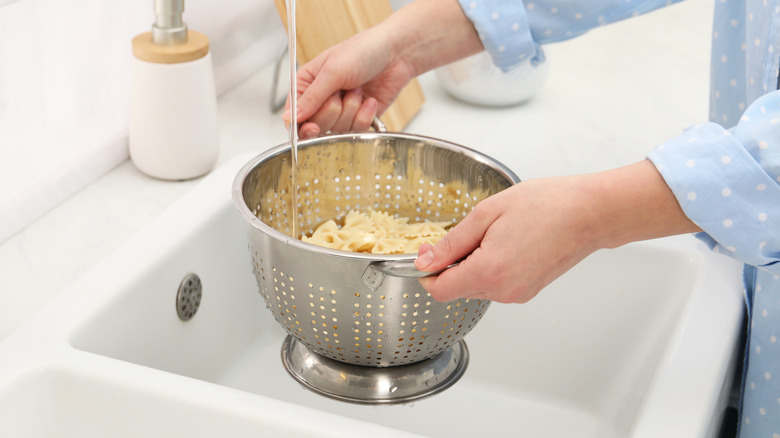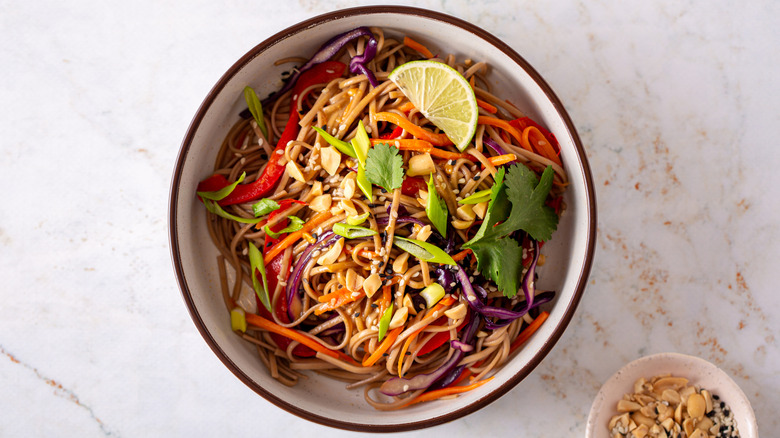When To Rinse Pasta Noodles And When To Skip It
By this point in the existence of the internet, you've probably seen dozens of ways to cook pasta, including an instance or two where cooks will rinse their pasta after it boils. Is this a secret method to unlocking flavor? Is it a technique that you need to implement with your next batch of rigatoni? Typically, the answer is no, you don't need to (and actually shouldn't) rinse pasta noodles after boiling. The only time you need to rinse those noodles is when you're making a pasta salad of some sort.
Rinsing pasta noodles under tap water is an effective method to rapidly cool them, which is great when you're working with cold dishes like Hawaiian macaroni salad but not ideal when you're trying to make a spaghetti carbonara. For a hot pasta dish, the last thing you want is cold noodles.
Pasta noodles also contain starch, an ingredient that not only adds a bit of creamy flavor to pasta dishes but also helps the meal come together physically. Rinsing them may seem like a way to prevent the noodles from sticking, but it actually strips away the valuable starch that helps give pasta dishes a glossy finish and great body. The starch that adheres to noodles after they boil allows sauce to stick to pasta. A saucy red, creamy cottage cheese Alfredo, bright pesto — you name it! Without the starches that come from pasta water, your dish is more likely to end up separated and watery.
Rinse pasta for cold dishes
The few times that you do want to rinse pasta noodles are when you're preparing cold dishes. Whether you are making garlicky-lemon herb macaroni salad for a summer barbecue or chilled soba noodles in peanut sauce for lunch, it can be hard to make perfect pasta salad when the noodles are sticky and clumping together. Since the salads will be served cold anyway, it doesn't matter that the rinse will remove heat. The cold water will also halt cooking, preventing those noodles from getting bloated and soft. Even though starch is the holy grail of flavor and texture when it comes to hot dishes, it can be a hindrance when preparing cold pasta.
The exception to this rule is with Asian noodles like ramen and udon. Even in hot dishes, it is common practice to give them a rinse. Removing the extra starch particles staves off a slimy consistency and prevents changes to the taste and texture of the broth or sauce. You also decrease the risk of the noodles sticking together.

